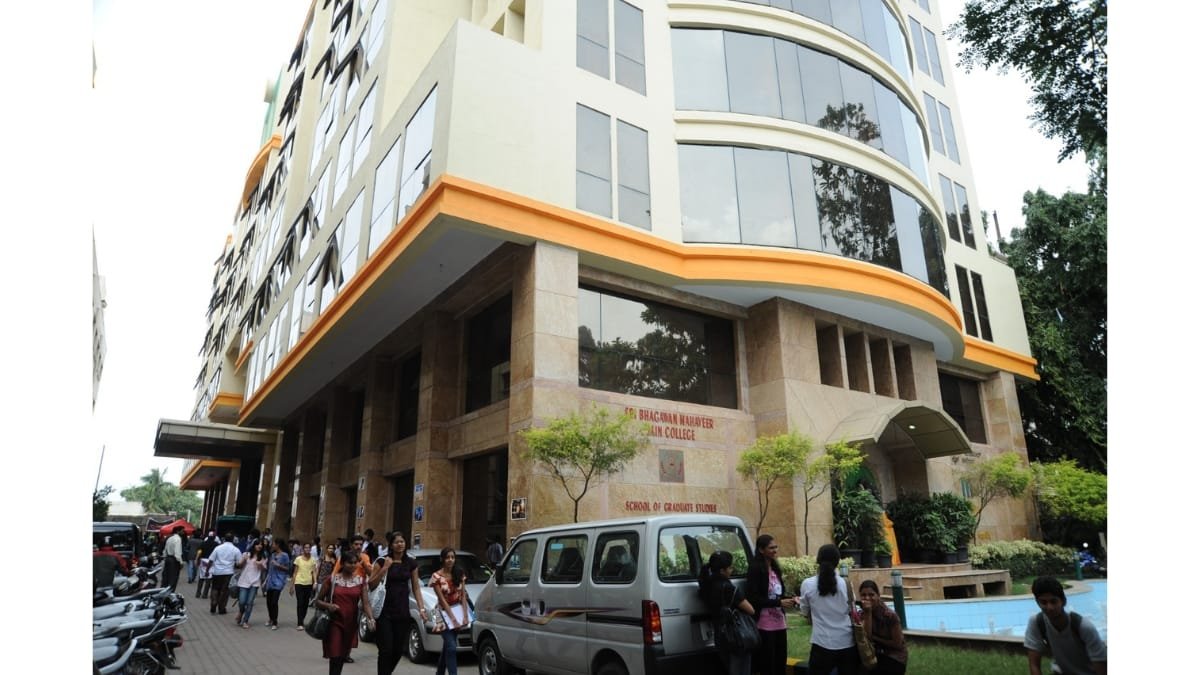Dr. Geetendra Singh, CEO of Biomentors Online
New Delhi (India), September 5: In an era marked by technological advancements, one domain that has witnessed a transformative shift is education. Particularly, the realm of competitive exam preparation has undergone a metamorphosis thanks to the advent of online education. This digital revolution has upended traditional norms and ushered in an era of equal opportunities for aspirants hailing from diverse backgrounds.
Gone are the days when geography dictated the quality of education an individual could access. Online education has dismantled these barriers, enabling students from remote corners of the country, rural areas, and regions with limited educational infrastructure to harness high-quality study resources and expert coaching. This virtual accessibility has leveled the playing field, giving every aspirant an equitable chance at excelling in competitive exams.
Online education has revolutionized the learning landscape by addressing the rigid structures of traditional coaching institutes. Its hallmark is flexibility, granting students the freedom to access lectures, materials, and tests on their own terms. This adaptable approach acknowledges individual responsibilities without compromising education quality. Moreover, it upholds the principle that education is a right, not a privilege, by eliminating financial barriers. Online platforms have made premium resources affordable, democratizing learning across socio-economic divides. Diverse teaching methods, such as videos, quizzes, forums, and live sessions, cater to various learning styles, breaking away from the one-size-fits-all model. This dynamic, inclusive, and accessible paradigm signifies the promising future of education.
In India, the historical landscape of competitive medical entrance exams has been dominated by a handful of key tests that determine admissions to medical courses. The prominent exams include NEET, which serves as the primary entrance exam for undergraduate medical and dental courses across government and private colleges. NEET replaced multiple regional and national exams, establishing a standardized process for admissions and evaluating students’ knowledge in physics, chemistry, and biology. Before NEET’s implementation, a variety of state and institutional exams created disparities in difficulty, syllabi, and evaluation methods, leading to unequal opportunities for students. NEET’s introduction aimed to create a more uniform platform for medical admissions nationwide, but changes in policies and exam patterns should be noted as the medical education landscape continues to evolve.
As expressed by Dr. Geetendra Singh, CEO of Biomentors Online, “In the face of soaring coaching fees, the notion of Quality Education appears to have become a privilege only attainable by the affluent. At Biomentors, we firmly hold the belief that every student should be entitled to a chance for the finest education, regardless of their financial circumstances. Our audacious vision revolves around leveling the educational landscape and rendering top-notch learning affordable and accessible to all. With a focus on enhancing and simplifying the learning process, we’re committed to turning the dream of NEET success into a reality for our students. Through the fusion of innovative technology and interactive, comprehensive teaching techniques, Biomentors, an online institution dedicated to NEET exam preparation, empowers students to conquer one of the most formidable medical entrance exams. Originating in 2008 as a modest offline institute, we’ve continually aspired to provide an economical yet exceptional education to each aspiring medical student. With a cadre of immensely experienced educators, our mission remains steadfast: to mentor students throughout their preparatory voyage and set them on a trajectory to excel in their future endeavors.”
In the context of NEET 2023, a significant statistical overview emerges, revealing that around 20.24 lakh candidates participated in the examination. Among these aspirants, 11.8 lakh were female, while 9.02 lakh were male. The evolving landscape of medical education in India becomes apparent when considering the upcoming 2023–24 counseling sessions, where a staggering count of over 705 medical colleges will be in operation, collectively offering 108,500 MBBS seats. Impressively, this represents an augmentation of 8,500 seats compared to the previous year, highlighting the continuous expansion and development within the medical education sector.
Talking about how technology and AI are reshaping performance analysis in education through various key aspects, educational technology platforms collect extensive data on student behavior and performance, enabling personalized learning experiences by identifying individual learning patterns. AI-driven analytics facilitate early identification of struggling students, while predictive analytics offer insights into student outcomes, aiding interventions. AI also delivers instantaneous feedback and automates grading processes, saving time. Learning analytics dashboards visualize student data, informing curriculum adjustments. Adaptive assessments, engagement analysis, and efficient administrative tasks benefit from AI integration. Ethical concerns encompass data privacy and bias mitigation. Furthermore, AI fosters continuous improvement by refining teaching methods based on performance insights. Ultimately, technology’s profound impact on education and performance analysis is poised to advance further.
Nayan Khengar, Chief Technology Officer at Biomentors Online, highlights the transformative power of technology, saying, “Particularly artificial intelligence, which has reshaped multiple facets of life, education is no exception. In the realm of student performance analysis, AI stands as a pivotal force, revolutionizing how educators and institutions comprehend and bolster the learning odysseys of their students.”
The comparison between offline and online learning experiences reveals a dynamic spectrum of educational opportunities. Offline learning, with its face-to-face interactions, structured schedules, and physical presence, fosters direct engagement between students and instructors, promoting immediate feedback and a sense of community. Hands-on activities and on-the-spot clarifications enhance comprehension, yet their limited flexibility might not align with diverse schedules. On the other hand, online learning presents a realm of flexibility, enabling learners to access content at their own pace and from anywhere. Diverse formats cater to different learning styles, while AI-driven personalization tailors education to individual needs. Its global reach connects learners with experts worldwide, fostering a rich exchange of knowledge. The cost-effectiveness, accessibility, and continuous updates of online education are noteworthy advantages. However, the lack of face-to-face interaction, technical prerequisites, and a potential sense of isolation pose challenges.
The landscape of online learning is swiftly evolving, driven by technology and changing educational needs. Anticipated trends encompass AI integration for personalized learning, microlearning’s emergence for bite-sized content, and immersive tech like VR and AR for interactive education. Gamification sustains engagement, while hybrid models combine online and in-person learning. However, the challenges of digital inclusion, engagement, and quality control must be tackled. In competitive exam prep, online education offers great advantages but also faces obstacles like internet access and self-discipline. Addressing these is vital for equal opportunities. As technology advances, it continues to shape education, giving marginalized voices a powerful platform and propelling them toward success.
For more information, please visit – www.biomentors.online
If you have any objection to this press release content, kindly contact pr.error.rectification[at]gmail.com to notify us. We will respond and rectify the situation in the next 24 hours.



